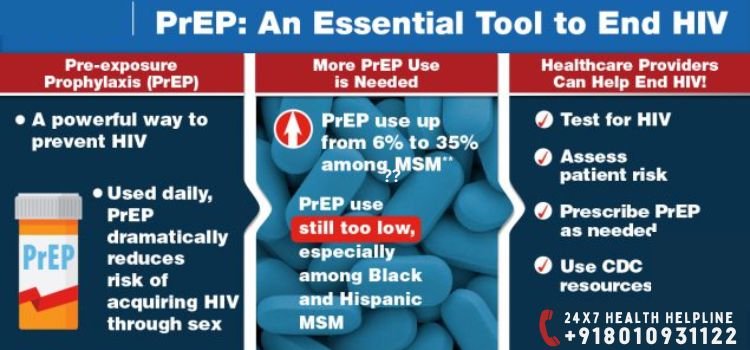Sexual Transmission and Prepping:
Sexual transmission is a significant factor in the spread of HIV, the virus responsible for AIDS. It is crucial to comprehend the chances of contracting HIV through sexual activities and the role of prepping in sexual health. Here we are going to explore the risks associated with sexual transmission, the concept of prepping, and how AIDS can happen through sexual activities.

Chances of Contracting HIV through Sexual Transmission
Sexual transmission is a primary mode of HIV transmission. Engaging in unprotected sexual activities, such as vaginal, anal, or oral sex, with an HIV-positive partner increases the risk of contracting the virus. Several factors influence the likelihood of HIV transmission, including the viral load of the infected partner, the presence of other transmitted infections (STIs), and the use of preventive measures like condoms or pre-exposure prophylaxis (PrEP).
Understanding Prepping in the Context of Sexual Health
Prepping, also known as pre-exposure prophylaxis, is a preventive strategy to reduce the risk of HIV transmission. It involves taking a daily medication called Truvada, which combines two antiretroviral drugs (tenofovir and emtricitabine). When taken consistently, PrEP significantly reduces the chances of contracting HIV through sexual activities. It is important to note that PrEP does not protect against other STIs, so practicing safe sex is still crucial.
How AIDS Can Be Caused through Sexual Activities
AIDS (Acquired Immunodeficiency Syndrome) is the advanced stage of HIV infection, characterized by severe immune system damage. Untreated HIV infection can progress to AIDS over time. Sexual activities, especially unprotected sex with an HIV-positive partner, can lead to the transmission of HIV and the subsequent development of AIDS. HIV attacks and destroys CD4 cells, which are crucial for maintaining a healthy immune system. As the number of CD4 cells declines, the immune system weakens, making the person more susceptible to opportunistic infections and certain cancers associated with AIDS.
Frequently Asked Questions (FAQs)
A: Although the risk is lower compared to vaginal or anal sex, it is still possible to contract HIV through oral sex, particularly if there are open sores or bleeding gums.
A: Correct and consistent use of condoms during sexual activities can greatly reduce the risk of HIV transmission. Condoms act as a barrier, preventing contact between body fluids that may contain the virus.
A: No, PrEP only protects against HIV. It does not protect against other STIs, so it’s essential to use condoms and practice safe sex to reduce the risk of other infections.
A: PrEP is recommended for individuals at high risk of HIV infection, such as those with an HIV-positive partner or those engaging in unprotected sex with multiple partners. Consult with a healthcare provider to determine if PrEP is suitable for your specific situation.
A: When taken consistently and correctly, PrEP can significantly reduce the risk of contracting HIV through sexual activities. Studies have shown that PrEP can reduce the risk by over 90% in individuals who adhere to the prescribed regimen.
Dr. Monga, as a renowned HIV doctor in Delhi, plays a crucial role in helping patients to understand the risks associated with sexual transmission and the importance of prepping for HIV prevention. Here’s how Dr. Monga can assist in promoting sexual health and preventing HIV transmission:
- Expert Guidance: Dr. Monga provides expert guidance and counseling regarding sexual health and HIV/AIDS. He can explain the risks associated with sexual transmission and educate individuals about the various preventive measures available.
- HIV Testing and Diagnosis: Dr. Monga offers HIV testing services to individuals who suspect exposure or want to assess their HIV status. Through accurate and confidential testing, he can diagnose HIV infection and provide appropriate medical advice based on the test results.
- Treatment and Management: In cases where individuals are diagnosed with HIV, Dr. Monga offers comprehensive treatment and management options. He stays updated with the latest advancements in HIV/AIDS care and ensures that patients receive the best possible treatment to manage their condition effectively.
- Pre-Exposure Prophylaxis (PrEP): Dr. Monga can guide individuals at high risk of HIV infection about the benefits and usage of PrEP. He can assess their eligibility for PrEP, prescribe the medication, and monitor its effectiveness to reduce the risk of HIV transmission.
- Safe Sex Practices: Dr. Monga emphasizes the importance of practicing safe sex. He educates individuals on proper condom usage, regular STI testing, and other preventive measures to minimize the risk of HIV transmission during sexual activities.
- Emotional Support: Dealing with HIV/AIDS can be emotionally challenging. Dr. Monga offers compassionate support and guidance to patients, addressing their concerns and helping them navigate the emotional aspects of living with HIV.
By seeking assistance from Dr. Monga, individuals can gain a better understanding of the risks associated with sexual transmission, receive appropriate preventive measures, and access comprehensive care and support for HIV/AIDS. Remember, regular consultations and open communication with Dr. Monga are essential for maintaining optimal sexual health and preventing the spread of HIV.
